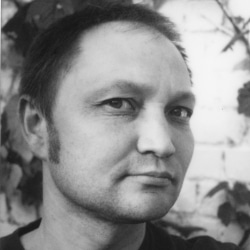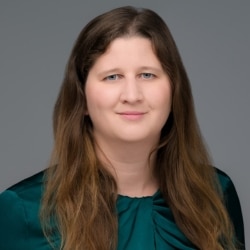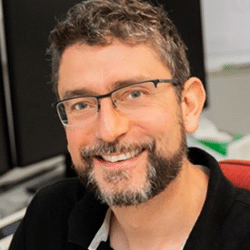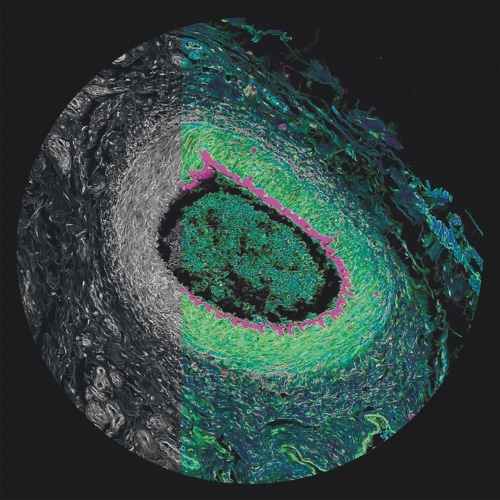
See the Hidden: Discover More with FLIM

Giulia Ossato, PhD
Senior Product Manager Confocal Advanced Microscopy, Leica Microsystems
Read BioGiulia Ossato is the Senior Product Manager for Confocal Advanced Microscopy at Leica Microsystems. She earned her PhD in Biomedical Engineering from the University of California, Irvine, focusing on protein aggregation in neurodegenerative diseases. She completed postdoctoral research at the Centro Nacional de Investigaciones Cardiovasculares in Madrid, working on autofluorescence lifetime imaging in zebrafish embryos, and at Ludwig Maximilian University in Munich.
Close
Ruslan Dmitriev, PhD
Assistant Professor, Ghent University
Read BioRuslan Dmitriev is an Assistant Professor at Ghent University in the Department of Human Structure and Repair. He obtained his PhD in Bioorganic Chemistry from the Shemyakin-Ovchinnikov Institute of Bioorganic Chemistry in Russia and completed postdoctoral training at University College Cork, Ireland. Before joining Ghent University in 2020, he was a Research Fellow at the Metabolic Imaging Group, University College Cork, focusing on imaging cellular oxygen gradients and cell metabolism in 3D tissue models.
Close
Prof. Dr. Michelle Frei
Assistant Professor, ETH Zürich
Read BioMichelle Frei is an Assistant Professor at ETH Zurich in the Department of Chemistry and Applied Biosciences. She earned her PhD from EPF Lausanne and the Max Planck Institute for Medical Research, Heidelberg, working on chemical tools for advanced fluorescence microscopy. She completed postdoctoral research at the University of California, San Diego, before joining ETH Zurich in July 2024 to lead her own research group.
Close
Mariano Gonzalez Pisfil
Staff Scientist, Ludwig-Maximilians-Universität München
Read BioMariano Gonzalez Pisfil is a Staff Scientist and FLIM expert at the Core Facility Bioimaging, Biomedical Center, Ludwig-Maximilian University (LMU) of Munich. He obtained his Bachelor's and Master's degrees from Lyon University and has been working with fluorescence lifetime imaging microscopy since 2012. He was a Marie Skłodowska–Curie Scholar at PicoQuant before joining LMU Munich.
Close
Jens Peter Gabriel
Advanced Workflow Specialist, Leica Microsystems
Read BioJens Peter Gabriel is an Advanced Workflow Specialist for Leica Microsystems. He obtained his PhD in Biology (Neurobiology) from the University of Cologne before continuing in this field as a postdoctoral researcher at the Max-Planck-Institute for Medical Research in Heidelberg/Germany, and the Karolinska Institute in Stockholm/Sweden. His main interest was neuronal network generating behavior, which he studied in zebrafish using methods like electrophysiology, multi-photon calcium imaging, and confocal microscopy. His passion for biological imaging was why Jens joined Leica Microsystems in 2009. He now contributes to scientific progress by helping researchers identify which microscope system best fits their requirements and supporting them through training and application advice.
Close
Patrick McMillen, Ph.D.
Scientist, Tufts Center for Regenerative Biology and Medicine
Read BioPatrick McMillen is a Staff Scientist in the Levin laboratory at Tufts University. He earned his undergraduate degree in Biology at Tufts University and his PhD in Molecular, Cellular, and Developmental Biology at Yale University. His research focuses on developmental biology and physiological imaging, particularly using Fluorescence Lifetime Imaging (FLIM) to study bioelectric communication in cultured cells and frog embryos.
Close
Dr. Boris Zarda
Advanced Workflow Manager, Leica Microsystems
Read BioBoris Zarda is the Advanced Workflow Manager at Leica Microsystems, with over 30 years of experience in fluorescence microscopy techniques. He trained as a microbiologist and has been with Leica Microsystems for 24 years, where he leads the Advanced Workflow Specialist team, focusing on optimizing imaging techniques and workflows in scientific research.
CloseSee how innovations in Fluorescence Lifetime Imaging Microscopy (FLIM) are driving discoveries in state-of-the-art applications, such as imaging oxygenation and cell metabolism in complex 3D models, harnessing epigenetic tools in live-cell microscopy, phasor analysis of multicolor imaging data, and more.
In this virtual workshop, you will learn:
- The foundational principles and key applications of FLIM for delivering quantitative, molecular-level insights in biological research
- Innovative approaches to enhance imaging resolution, distinguish multiple fluorescent signals, and analyze complex biological processes with greater clarity
- How advanced imaging technologies like STELLARIS FALCON are redefining confocal microscopy
Join us for a virtual workshop focused on advancements in Fluorescence Lifetime Imaging Microscopy (FLIM) and the capabilities of the STELLARIS FALCON system by Leica Microsystems. The event will cover the principles and main applications of FLIM, emphasizing its role in providing quantitative molecular-level data.
Expert presentations and live showcases will explore the impact of these technologies on biomedical research and cellular imaging. Additionally, the workshop will feature discussions on recent developments, such as using red/near-infrared emitting cell staining oxygen-sensitive nanoparticles for measuring spheroid oxygenation and the engineering of HaloTag variants to modulate photophysical properties for live-cell multiplexing.
We will also explore multicolor FLIM approaches using phasor-based analysis to increase the number of distinguishable colors in laser scanning microscopy. This event will highlight how these cutting-edge technologies set new standards in confocal microscopy to enhance our understanding of complex biological processes.
